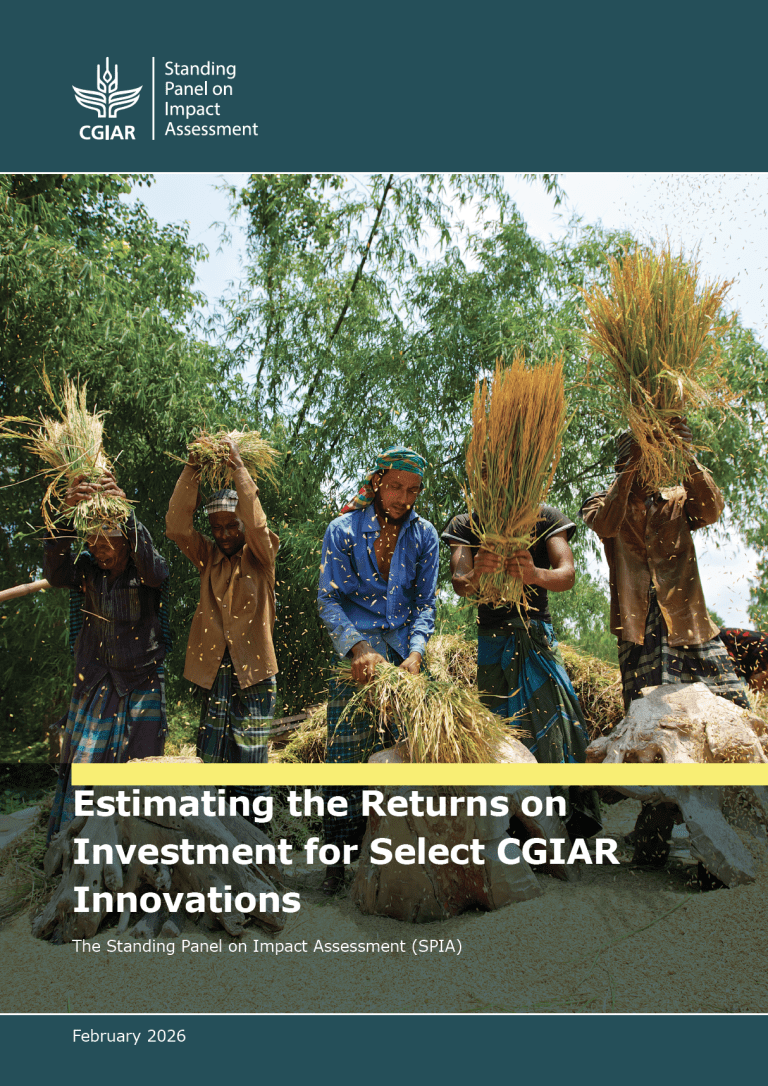One of SPIA’s core strategies is to improve the evidence base on adoption of CGIAR-related agricultural innovations. We do this by partnering with national statistics agencies in countries that are of high priority to CGIAR. SPIA certainly can’t do this work everywhere, which begs the question: how to identify the high priority countries? We’ve used three criteria: the number of CGIAR centers working there; the total number of households targeted by CGIAR research programs in the country; and the presence of a strong national statistics agency who are willing to collaborate. Ethiopia scores highly on all three of these criteria.
Through our partnership with the World Bank Living Standards Measurement team, we have been working with the Ethiopian Central Statistics Agency (CSA) since 2015 to pilot, experiment and institutionalize new data collection techniques in their surveys. On Feb 19th and 20th 2020, SPIA and the Ethiopian Institute for Agricultural Research (EIAR) convened a consultation workshop for stakeholders from various Ethiopian government agencies and the CGIAR centers operating in Ethiopia. This was our chance to provide some early results from our work, to get a peer-review of our wthin-country prioritization of topics, and to discuss the ways ahead for further analysis from the data that are coming on stream.
Solomon Alemu is a pre-doctoral fellow with SPIA and has been supporting our work program in Ethiopia (led by Dr Frederic Kosmowski) since August 2019. Below he adds his personal reflections on the workshop:
“The workshop in Addis Ababa was an opportunity to work with my team in person, interact and recap on what we have been doing remotely. This is my third time participating in such workshops since I have started my Pre-Doctoral Fellowship, and I have always enjoyed meeting my team face to face.
The workshop with partners and stakeholders was also crucial to move our activities forward. I have had the opportunity to meet our partners from CGIAR centers, the Agricultural Transformation Agency (ATA), Ethiopian Institute for Agricultural Research (EIAR) and the Ministry of Agriculture (MoA). Having the representatives under one roof, for a discussion on what we have been doing and the way forward was helpful. Participants were happy and said they have got clarity in our work.
The workshop was also a validation for the activities so far. Updating our partners and stakeholders on CGIAR-derived innovations; considering we plan to use the ESS data rigorously for research work, helpful to get insight on the socio-economic survey approaches, methods and tools – especially how they are handling local measurement units.
The interaction with various organizations and learning about their efforts was an eye-opener. I was impressed by the work by the Central Statistical Agency (CSA) which is the only organized data source for policy and planning work in Ethiopia. Their commitment to improve data quality using an innovative way of data collection was inspiring to me. The collaboration work with World Bank to improve measurement errors is also impressive, and potentially helpful for CGIAR.
Some of the innovative approaches presented were also the highlight of the workshop. For example, I was interested by Professor Lybbert’s explanation about the difference between embodied and disembodied innovations, and the implications for research on dissemination, adoption and impacts of innovations. It was informative and the communicated to us in a way that made it easy to understand. The slides about agroforestry practices in Ethiopia using an area-specific unit of analysis by Dr. Endalkachew was interesting and an eye-opener to a new way of doing impact study.
All in all, the workshop was a success and a sharing/learning opportunity. I look forward to another one in the near future.”


